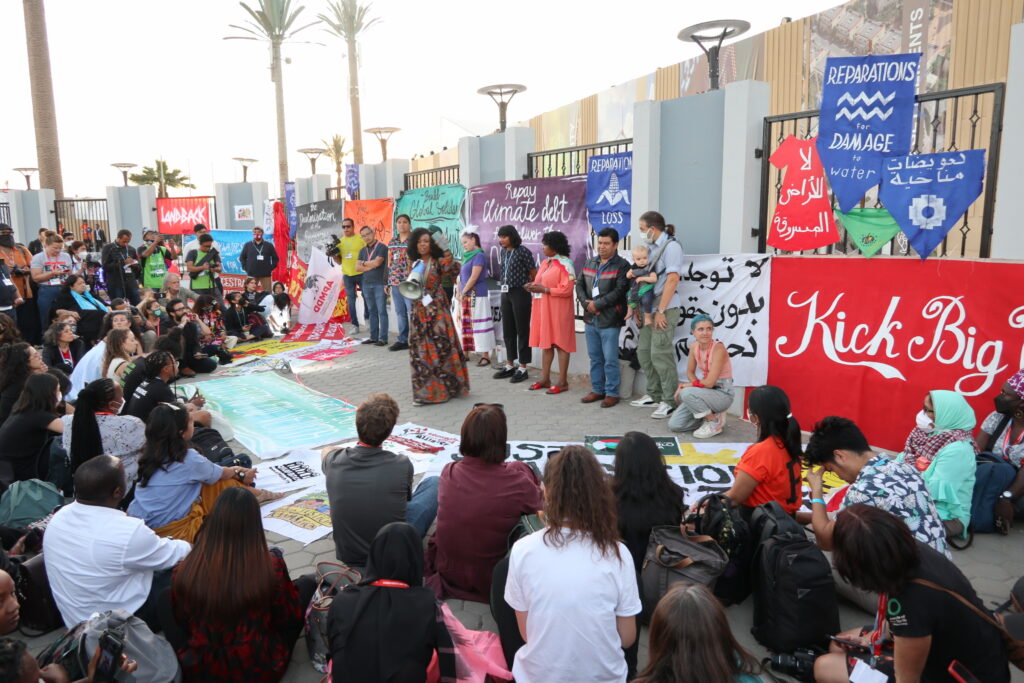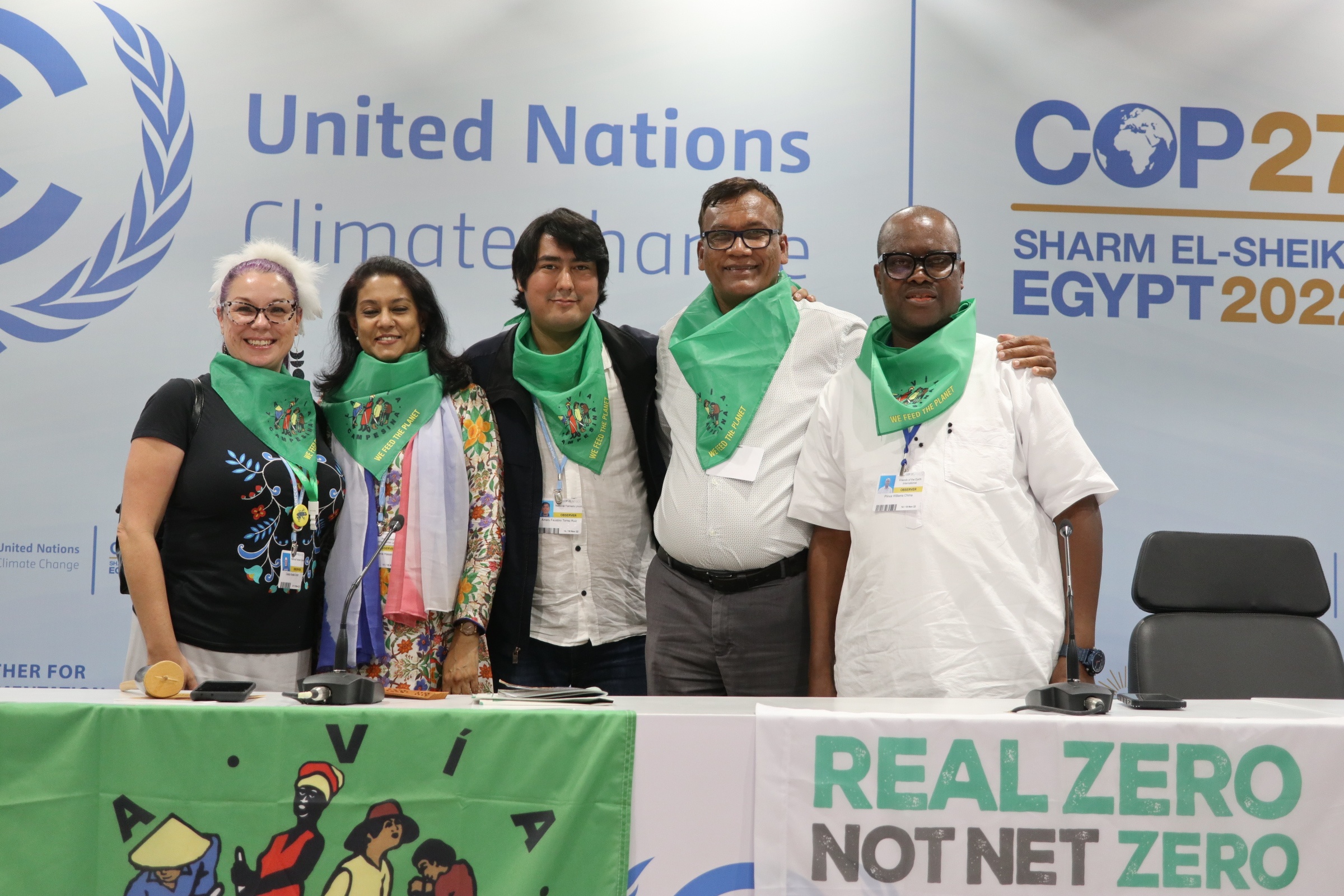Sharm el Sheikh, Egypt – The false solutions promoted by the UNFCCC, as we have come to expect, do nothing to address the climate chaos at its painful roots of capitalism, colonialism, white supremacy, and patriarchy. Instead, they are only a continuation of those systems of oppression that allow for continued profit without restraint at the expense of the planet and the people living in closest relationship with it. One of the most talked about of these empty promises at COP27 has been Net Zero, which hinges on balancing the carbon emissions budget in the coming decades through technology fixes, carbon markets, geoengineering, and creative accounting.
But as social movements, we ask: what could a real zero look like that would be able to tackle the problem at the source? La Vía Campesina and the Friends of the Earth International had an opportunity for a joint educational panel at COP27 to share our proposals. From energy sovereignty to gender justice, and from land rights to food sovereignty, peasants and environmentalists shared the true answers to the climate crisis in their communities. Last week on 16 November, our movements and networks outlined what these visions look like when put into practice by the grassroots.
Our allies at Friends of the Earth International put out a bottom line demand, and that is that emissions can only be reduced when the people – not the corporations – set the standards. Some of those are already written into international legal documents, but the challenge now is implementation without cooptation.
“The so-called ‘experts’ of the COP are crazy about data,” said Amaru Torrez from La Vía Campesina’s Nicaraguan member organization Asociación de Trabajadores del Campo (ATC / Rural Workers’ Association), “So we are coming here armed with our own data.” Amaru shared that the industrial food system contributes some 70 percent of global greenhouse gasses, and is responsible for some 90 percent of deforestation. He elaborated: “Food production is not the same as it was before the Green Revolution, it contains only half of the nutrients it once did. Today, agribusiness produces more food than ever before, but it is still unable to feed the hungry.”
Peasants like the members of ATC in Nicaragua, however, are able to produce remarkably more healthy food with significantly less land. “As small-scale family farmers, we produce some 70 percent of the world’s food on about 25 percent of the land,” Amaru shared, “Big agriculture, on the other hand, only gives us 30 percent of the food supply, but takes up more than 70 percent of the land.” Amaru continued to explain that peasant productivity is directly tied to ancestral and Indigenous forms of knowledge. One way that ATC and other member organizations of La Vía Campesina distribute this knowledge is through the Latin American Institute of Agroecology (IALAs), which are institutes of agroecology strategically intentioned to scale out food sovereignty horizontally in peasant communities.
Celeste Smith, an Indigenous seedkeeper from Canada’s National Farmers’ Union, also represented La Vía Campesina at the event. “We can’t just name our oppression, without also naming our solutions,” she said. Through the agricultural rematriation project she curates, Celeste affirms that women are reestablishing lost connections between land, food, and one another. “Access to biodiversity, land, and knowledge is true food justice,” she offered.
It is abundantly clear that the solutions are in our communities, playing out in vibrant and creative ways. And it is our imperative as social justice movements – peasants and environmentalists alike – to defend and promote them at all costs.


